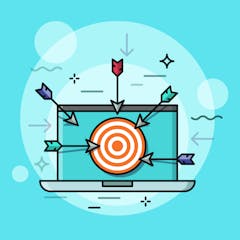
Artículos sobre Facebook
Mostrando 581 - 600 de 1002 artículos

Third party data brokers trade in personal information and the industry is worth billions. But the activities of these companies remain largely invisible. It’s time to shine a light.

Why are the masses not disconnecting from Facebook despite the litany of revelations that the company’s brass has long viewed them as dumb sheep?

In the wake of the Cambridge Analytica scandal, Facebook users seek answers on how their data is scraped and targeted.

Human rights abuses might be embedded in the business model that has evolved for social media companies in their second decade.

The ongoing Facebook and Cambridge Analytica scandal has generated big headlines, but consumer and marketing research have long questioned the actual effectiveness of psychographic segmentation.

An email from Aleksandr Kogan sheds light on exactly how much your Facebook data reveals about you, and what data scientists can actually do with that information.

Facebook has become a key part of the world’s infrastructure, not just another tech company. It’s time to start treating it that way.

Zuckerberg’s control over the way Facebook is run far outstrips his shareholdings. That can be a problem when scandals hit.

Social media provide shortcuts to things we yearn for, like connection and validation. Media effects scholars explain the psychological benefits we get from Facebook that make it so hard to quit.

From predicting suicide risk to chatbot therapy, artificial intelligence is all the rage in suicide prevention. The question is, can it really work?

Young people are abandoning Facebook and calls to delete profiles are growing over the alleged exploitation of data for political campaigns.

Facebook’s users have wildly different expectations about privacy and security. What may look like inadequate oversight in some places may be considered an overreach in others.

The silver lining to the Cambridge Analytica case is that more people are recognising that we pay for online services with not only our own privacy, but that of our friends, family and colleagues.

Slacktivism won’t cut it in the wake of the Cambridge Analytica scandal.

When thinking about regulating them, it’s useful to know Facebook, Amazon, Google, Apple and Microsoft have some similarities. But generally they’re not competing with each other – or anyone else.

Users shouldn’t trust Facebook, but that doesn’t mean they should immediately abandon what has become a crucial platform for connectedness.

It’s surprising that news publishers seem to hand more power to Google because now more than ever there’s an urgency to have clear barriers between news companies, social media platforms and search engines.

Do you think you’ve set up your Facebook account so that only your friends can see your information? Think again…

The Cambridge Analytica scandal wasn’t a data breach – it was a violation of academic ethics. Maybe it’s universities, not social networks, that need to update their privacy settings.

How data-driven behavioural sciences are being road tested in the political sphere.
